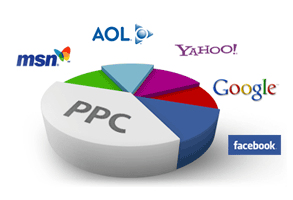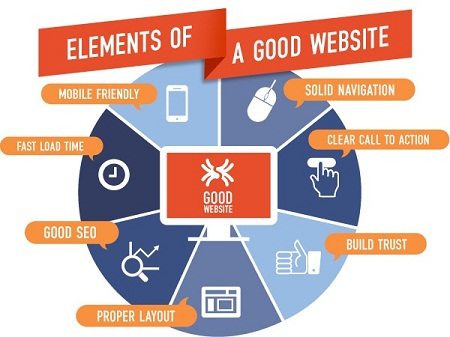Speaking to Suggestive.com, Mark Elliot the Managing Director of Sparks4Growth Ltd, shared many valuable insights about online marketing and its implications on various businesses. Sparks4Growth is a London based digital marketing company with worldwide cliental.
Before setting up his digital marketing agency Mark worked on marketing and innovation in major blue-chip organizations.

Mark Elliot/ IMG: Sparks4Growth
Mark continued to develop digital marketing, analysis and process skills. These skills have been put into practice for many businesses to seize their potential. His constant focus is on the profile of the customers of the businesses he works with. Using this insight to develop marketing campaigns that create lasting business relationships and drive up on going revenue.
Since starting up his digital marketing agency Sparks4Growth Ltd. Mark and his team have worked on a range of digital marketing projects for numerous businesses including telecoms companies, musicians, haut couture and major private hire vehicle companies.
Blending together marketing consultancy with tactical marketing including email marketing, web development and Wi-Fi marketing services to maximize business opportunities.
Q: If I have a small business should I invest in Pay Per Click? What is the amount of risk involved?
Pay Per Click has many advantages and disadvantages. It is not a straightforward ‘yes/no’ decision as to whether PPC is a good expense. It is not an investment that is certain, as there is no equity left after the PPC campaign or campaigns.

IMG: Smith Consulting
In my view using PPC is great for short run campaigns or for a business starting out online. It gives a boost to the companies web presence in the absence of longer term SEO and content marketing strategies taking hold.
The major disadvantages are cost per click, expertise required to run a campaign that will yield a return on investment and longevity of the expense. In other words, once the campaign has ‘stopped’ there is no legacy advantage and as a marketing investment it has no equity.
This is where investment into SEO, which takes longer to actualize breaks even on ROI as a far better investment option. SEO, done properly, will continue to drive more relevant traffic for a longer period of time. The disadvantage is the time it takes to reap this reward (SEO is not instant) and the expertise required, but in the mid-long term it is a preferable option to PPC. SEO is an ‘investment’ as it allows the company to write down the cost, not as an expense, but as a business asset in the same way as say buildings or owned site premises are. It will also add to the valuation of the company as an asset.
Q: How do I approach Social Media Marketing, for some people it works, for others it doesn’t, why?
Social media is, like websites, a marketing tactic and channel. Very often social media is run badly, doesn’t attempt to engage with its target clients and tends to broadcast rather ‘engage’. When it is done well of course the results can be explosive.

IMG: Entrepreneur
The other reason ‘it’ doesn’t work well is if the wrong medium is chosen. So if your potential customers are all on Instagram and you are furiously updating Facebook then you are in the wrong place. Demographics, relevancy, timing and so forth are all key considerations and should be heavily researched before firing all messages and posts in all directions in the hope of hitting the target market. It’s down to basic marketing principles and good quality content of course.
Q: Does having a good website matter to get business?
Good quality – yes always. But what does ‘good quality’ mean? There are reams of books and advice on this topic but I tend to boil it down to some fundamentals. Such as ‘what are your audience seeking when they go online?’, ‘what are you trying to communicate about your product, service’ and so forth.

IMG: Spin CW
Some companies will only ever need a ‘portfolio’ website, a kind of online brochure, others will need a working transaction (ecommerce site) and others will need a deeply created SEO website that presents them top of Google to be able to compete. All of these website variants need to be good quality, visually, in terms of customer experience, ability to convert customers on site and more increasingly mobile optimized.
Does it matter to actually ‘get business’ that depends on the strategy and reason for having a website in the first place. It might be that the site is not designed to drive immediate business, but say support brand objectives.
There are plenty of companies that I speak to and know that survive with no website. You don’t ‘have’ to have a website to ‘get more business’ as traditional marketing channels and solid sales teams are still key to the marketing / sales mix.
Simply put, there is no ‘one size fits all’ marketing solution and tactics, channels etc. like websites are a choice to fulfill an objective, not a pre-requisite.
Q: Can a small or new business setup survive on digital marketing and SEO alone?
Yes probably there are examples of this but again these are just marketing ‘methods’. In reality people buy from people and on trust, so if all you have is a website that ranks #1 in Google for a host of reasons but when a customer needs to ask a question there is no to help then they will go elsewhere.

IMG: Stock
Although our ‘heads down’ generation (where we are all staring at mobile screens or tablets a lot of the day) are almost tied to the digital world a lot of business is done by word of mouth or recommendation. Or simply someone calling you by telephone, handing you a leaflet and so on.
It may be that one day that digital marketing will be the only choice but at the moment I see this arena as an extension of the traditional marketing mix.
Q: Are there any free options in digital marketing?
Plenty. People forget very quickly that most of the social media platforms Twitter, Facebook, LinkedIn, Snap chat… are all free and open for marketing. But there really is no such thing as free and the costs are down to resources / time required to create meaningful content, images, manage responses, engage with customers.
The same goes for all digital marketing channels including email marketing (which people often forget exists as it is such a ‘norm’). Email marketing is a mix of a numbers and content quality versus relevancy. The ‘cost’ is to get this right, investing time into preparing data, testing variants, post campaign analysis and so forth.
So yes, there are free options, but as the old saying goes “there’s (rarely) such thing as a free dinner”
Q: Is there a way to tell a good marketing team from a bad one, without possibly engaging them?
Not really. The only way that one can achieve this is by genuine recommendations from friends, relatives, colleagues, trusted business partners etc. who can give you insight into a marketing team from their experiences.
There are many glossy looking marketing companies who promise the earth (and possibly cost it too) but don’t actually deliver.
I personally am always wary of simply responding to a customer enquiry that goes ‘I need a website’ with ‘sure we’ll build you one’. In my view this is a bit like selling cheap goods in a market place with no consideration to whether the products are the right solution for the business problem that the customer has. A good agency and I feel we do this, consults with the customer to understand ‘why’ the customer wants a website, what business issue it solves or enhances and even advises against this initial requirement – guiding towards a more relevant and investable solution.
Q: What sort of businesses should do digital marketing, is it for everyone?
There are examples of all channels, segments, types of businesses who have used digital marketing successfully or otherwise. There are simply too many variables to directly answer this question but I think there are nearly always at least one or two digital marketing solutions that can enhance a businesses potential. The knack of it is identifying the right one/s that fit with the business problem and solve it effectively.

IMG: LinkedIN
There is a huge skillset required to strategize, plan, deliver and evaluate digital marketing this in itself can be prohibitive for many companies. Even the well established ones. Without the right skilled experts and the right strategic vision digital marketing can become simply a distraction for the business or simply a cost.
Outsourcing to expert teams, agency or freelancers can be a solution for many business and reduces the on-cost of employing in house teams to carry out this expert work. Our team certainly help a lot of businesses in this way and compared to directly employing staff works out more cost effective.










Hi Nuur, great talking to you and thank you for publishing the interview we did last week, Mark.
My pleasure Mark. This was very informative… I am sure new business owners must be fascinated to hear your views.